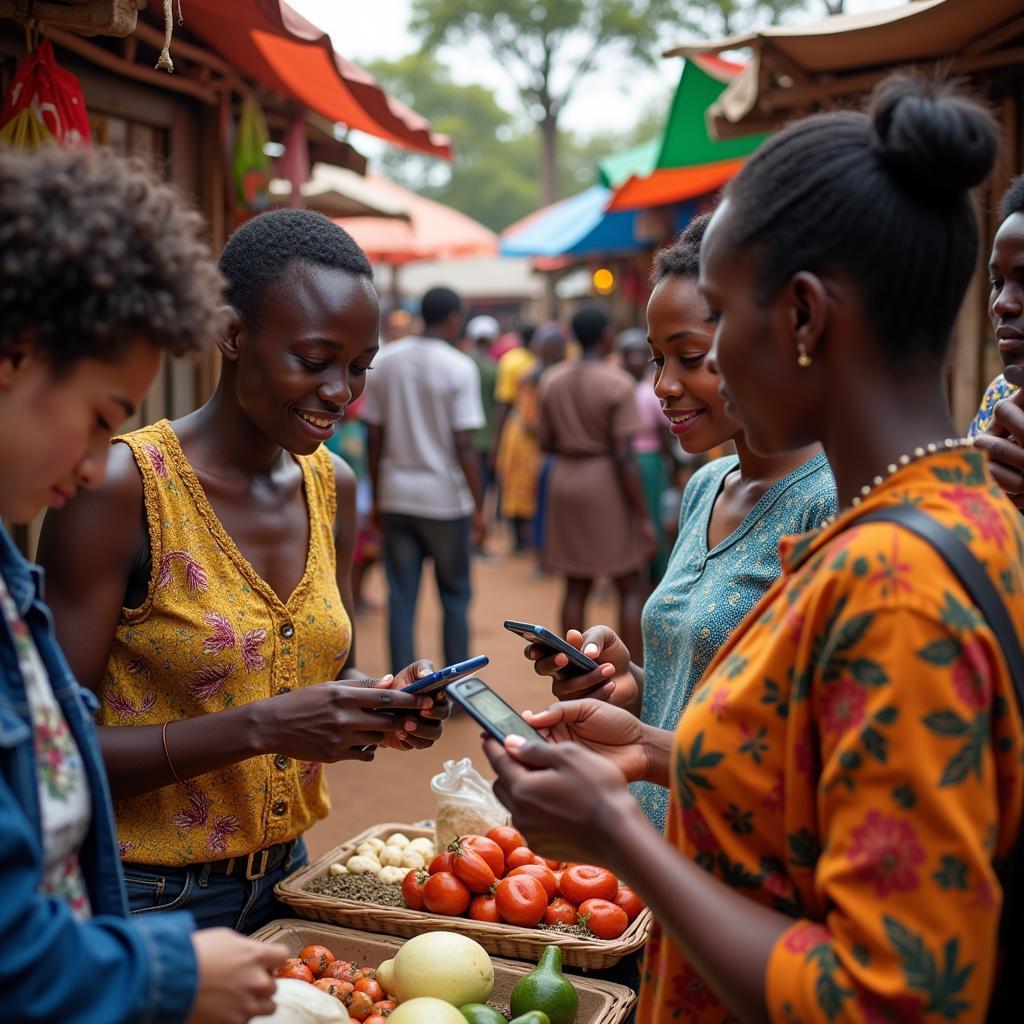Exploring the World of African Accent Translators
The African continent, with its vast tapestry of cultures and languages, presents a unique challenge for those seeking to understand its diverse sounds: finding an accurate and reliable “African Accent Translator”. While the concept of a single translator encompassing all African accents is a misnomer, we can delve into the fascinating world of African languages and explore the tools that bridge the communication gap.
The Diversity of African Languages and Accents
Africa is a continent teeming with linguistic diversity, boasting over 2000 distinct languages. This rich linguistic landscape translates into a vast array of accents, each shaped by unique phonetic patterns, intonation, and rhythms.
From the click consonants of the Khoisan languages in Southern Africa to the tonal variations in the Niger-Congo languages spoken across much of sub-Saharan Africa, the sheer breadth of phonetic diversity can be overwhelming. This is why the idea of a universal “african accent translator” is unrealistic.
Navigating the Challenges: Tools for Understanding
While a catch-all translator remains elusive, several tools and technologies can assist in navigating the intricate world of African accents:
1. Language Learning Apps and Software
Numerous language learning platforms, such as Duolingo, Babbel, and Rosetta Stone, offer courses in widely spoken African languages like Swahili, Amharic, and Yoruba. These programs often incorporate pronunciation exercises and audio samples spoken by native speakers, helping learners familiarize themselves with specific accents.
2. Speech-to-Text and Translation Services
Companies like Google, Microsoft, and Amazon have invested heavily in developing sophisticated speech recognition and translation technologies. These services are continually evolving to encompass a wider range of languages and accents, including those spoken in Africa. While not perfect, they offer a valuable starting point for basic communication.
3. Specialized Accent Dictionaries and Pronunciation Guides
For individuals interested in delving deeper into specific African languages and accents, specialized dictionaries and pronunciation guides are available. These resources often provide detailed phonetic transcriptions, audio recordings, and explanations of unique pronunciation features.
The Human Element: Importance of Cultural Sensitivity
While technology plays a crucial role in bridging language barriers, it’s important to remember the human element in communication. Cultural sensitivity and awareness are paramount when interacting with individuals from diverse linguistic backgrounds.
- Be Patient and Understanding: Recognize that communication difficulties may arise and that patience is key.
- Speak Clearly and Slowly: Enunciate clearly and speak at a slightly slower pace, allowing time for comprehension.
- Use Non-Verbal Cues: Body language, facial expressions, and gestures can greatly enhance understanding.
- Be Mindful of Dialects and Regional Variations: Just as accents vary within a language, so do dialects and regionalisms within African countries.
Embracing the Beauty of Linguistic Diversity
The search for an “african accent translator” ultimately leads us to a deeper appreciation for the continent’s remarkable linguistic diversity. While technology can assist in overcoming communication barriers, it’s the human connection and mutual respect that fosters genuine understanding. By approaching these interactions with curiosity and a willingness to learn, we can celebrate the richness of African languages and foster meaningful connections across cultures.
Frequently Asked Questions (FAQ)
1. Is there a single universal African accent?
No, there is no single African accent. Africa is home to thousands of languages and countless regional variations, resulting in a vast array of accents.
2. What are some widely spoken African languages?
Some of the most widely spoken African languages include Swahili, Amharic, Yoruba, Igbo, and Hausa.
3. Are there any reliable online translators for African languages?
While online translation services are continually improving, it’s important to note that accuracy can vary depending on the language and accent. Google Translate, Microsoft Translator, and Amazon Translate offer support for several African languages.
4. How can I learn to understand different African accents?
Immersing yourself in the language through movies, music, and interactions with native speakers is highly effective. Language learning apps and specialized dictionaries can also be valuable tools.
5. What are some tips for effective communication with someone who has a strong African accent?
Patience, active listening, clear enunciation, and the use of non-verbal cues are all helpful strategies. Remember to be respectful of cultural differences and avoid making assumptions based on accents.
Need Help Bridging the Communication Gap?
For assistance with African language translation, interpretation, or cultural consulting, contact us at:
Phone: +255768904061
Email: [email protected]
Address: Mbarali DC Mawindi, Kangaga, Tanzania.
Our dedicated team is available 24/7 to assist you.



